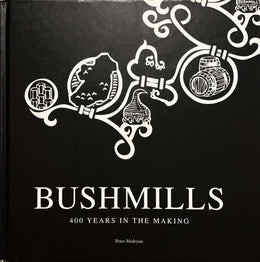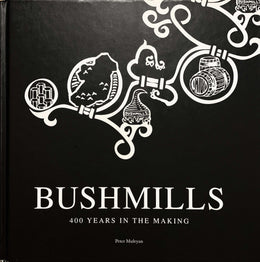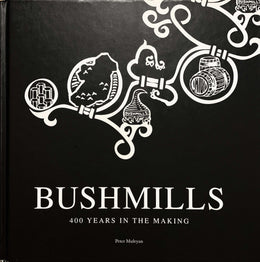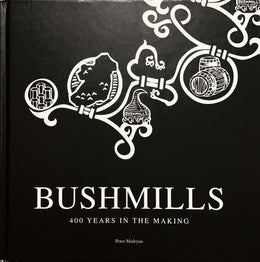In the Orkney capital of Kirkwall stands a fine medieval cathedral, the largest and most impressive building on any of Britain's offshore islands. It is a splendid monument to the enterprise and devotion of Earl Rognvald, who began it in 1138. But its true purpose is to house the bones ofa martyr, St Magnus. He too was an Earl of Orkney, but a most untypical one, as this story tells.

What did it take to be a successful Earl of Orkney in the Viking period? Back in thunder comes the answer from the voices of Earl Thorfinn, Earl Sigurd, Earl Hakon and their ilk —a fearless life, red-handed leadership in battle, martial honour above everything, and a glorious death to end it all. But the Earl whose memory is greenest, whose monument is greatest, spoke with a very different voice.
When they sang Magnus into the great saga of Orkney's Earls, they said he was tall, broad, fine of feature —grand-sounding stuff, but quite untrue. His bones, which still lie in the cathedral begun in 1138 to house them, show he was a smallish man, slight of frame, not a great stout warrior at all.
The most important thing in Earl Magnus's life was not being an earl; it was being a man of God. But everyday life must be lived, and his hall was a welcoming place for any man who kept the peace, whether or not he met the Lord's own standards. There was good talk, good food and good drink to be had. Magnus's own conversation was free and easy, and if he himself ate little and drank less, he did not stint his friends and visitors. He watched their doings wryly enough at times, when a man would follow a kitchen lass out of the hall, and be away for some time before sneaking back. Magnus himself had gone ten long years without touching his wife, to honour a bond between himself and his God. He had been tempted many a time, and when he could not bear it any longer he would plunge himself into a tub of freezing water. Perhaps he should have been a monk, but he was born to rule, and when it came to judgement and lawgiving, there was nothing soft or foolish about him. Freebooting Vikings, cattle robbers and thieves found that the holy earl was not impressed by last-minute repentance. He sent them to the gallows and the mercy of a higher jurisdiction than his own.

If there had been only one Earl and that one Earl Magnus, then Orkney would have been a happy place. But they were two Earls who shared the islands, and the other was Hakon. They were first cousins, but they might have come from opposite ends of the earth. Hakon was a fighter, not a thinker. Magnus spent hours at his prayers while Hakon got through his with a rapid mutter. There were few men of stronger will than Magnus: once he had made his mind up, nothing could deflect him. Hakon could be persuaded. Magnus envied no-one, while Hakon was gradually consumed by jealousy of Magnus; whatever he did was outshone by the other.
Even his prowess in battle did not help him. Magnus was anything but a coward, but he did not believe in fighting for its own sake.
Once as a young man he had been sent on expedition with that hot- blooded old pirate King Magnus Barelegs, and they were about to join battle with two Welsh earls, Hugh the Stout and Hugh the Proud. Magnus refused to fight, saying he had no quarrel with these men. Never in their blazing, bloody history had a Norse nobleman said such a thing. The furious King sneered, and called him gutless, but Magnus sat on the deck, calmly reading the Psalms, while arrows rattled into the ship like hail. There were some who realised that that took more courage than to leap from the gunwale waving a battleaxe.
Proud Hakon could not endure to live in humble Magnus's shadow. But when after seven years of shared rule, the inevitable crisis came, there was no struggle. Can Magnus be called a successful Earl if he meekly hand- ed over not only his power but also his life? As a man who measured himself against a far more austere standard, he would have despised the question. In his life he had tried to combine being a good man with being an Earl of Orkney. Faced in the end with the steely impossibility of this, he cheerfully took the hard choice. Looking back, we can understand him better than his contemporaries did, perhaps, but still have to marvel at the icy purity of the logic by which he died.
One of Earl Magnus's men, who was with him to the last, recorded the events of the fatal day, set out with stark simplicity in the Orkneyinga Saga. The Earls had arranged to meet on Egilsay, to confer together and seal the bond of their much-tested friendship. Each would bring two ships only. Magnus, whatever he might have suspected, of course put his trust in
Hakon's fair words. He had already landed with his two vessels, when he saw Hakon coming with a fleet of eight, packed with armed men. He knew then his trust had been abused, and that deadly treachery was intended. Those with him urged him to escape, or to stand and fight, however desperate the odds. He was as calm as if playing a game of chess. "I will risk no lives for mine," he said. "We are in God's hands."
When Hakon's war-band landed, Earl Magnus's men tried to get him to hide, but he stood up and showed himself. "Here I am", he shouted. And even then he made no reproach, but simply said Hakon must have listened to bad advice. Standing before Hakon and his chief men, Magnus showed no concern for his own life, but only to save his cousin from the consequences of a shocking crime. First he offered to leave Orkney on pilgrimage, never to return. This was refused. He offered to submit to imprisonment in Scotland. Refused. Then Magnus calmly made a horrifying proposal. "Strike out my eyes," he said. "Throw me in a dungeon and lose the key. Do that, rather than have my innocent soul upon your conscience." Hakon would have accepted this, but he had led his men too far for half-measures now. They wanted to see blood spilled, and they closed round him with harsh whispers. "One Earl will die today, one Earl will rule," they said, and Hakon yielded to the fire in their eyes. "Kill him, then," he muttered, "for I would rather rule than die."
They let their victim pray, and stood looking at the clouds, avoiding one another's glance, as he begged for forgiveness for them. Then, when Magnus had finished, Hakon ordered his standard-bearer, Ofeig, to do the deed. But the Earl was taken sharply aback when Ofeig refused, in high rage at being singled out for such a task. The slayer of Earl Magnus would be treated worse than a leper throughout the islands. Hakon had to turn to his cook, Lifolf, who could not dare to refuse, yet who began to shake and weep, until Magnus spoke to him. "Bear up, man. The sin lies with your master who compels you, not with you. You shall have my clothes, by the old custom." And he took off his tunic, which the cook would never have got his brawny shoulders into, but which was worth his half-year's wages. "Stand in front of me", he said. "Don't be afraid. Strike hard. It's an Earl of Orkney you are making an end of, not some common thief."
Let George Mackay Brown, a modern minstrel whose words shine in the new song of Orkney's history, have the coda: "He crossed himself. He offered his body to the axe. A single stroke took him flush on the forehead; and, a peregrine spirit, he shook this world from him.
The place up to that time had been a waste of moss and stone. But soon afterwards —so precious was Magnus to God —green grass grew over the murder spot. This was God's way of showing that it was a holy death; that now Magnus was caught up in another intensity.
This is one image of Heaven: green pastures in the Land of the Ever- Young."
Written by D R Sutherland
The text is an excerpt from "Orkney Stories: A specially commissioned collection by Highland Park" (pp. 13 - 17), published 1995 by Matthew Gloag & Son Limited under the commission of Highland Park Single Malt Scotch Whisky.







